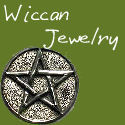The Bloggers' FAQ on Adult Material addresses the legal issues arising from publishing risque adult-oriented content, including obscenity law, community standards on the Internet, and the new 2257 regulations.
Can I put adult content on my blog?
Yes. The First Amendment protects your right to communicate legal adult content to the public. However, the law prohibits distribution of obscene material and child pornography. In addition, a federal law, 18 U.S.C. § 2257, currently being challenged in court, imposes record-keeping requirements on a broadly defined category of producers of sexually explicit material.
What is obscene material?
United States courts use the Miller test for determining whether speech or expression is "obscene," and therefore not protected by the First Amendment. That means it can legally be banned.
The Miller test stems from Miller v. California, 413 U.S. 15 (1973), in which the US Supreme Court held that material is obscene if each of the following factors is satisfied:
* Whether the average person, applying contemporary community standards, would find that the work, taken as a whole, appeals to the prurient interest;
* Whether the work depicts/describes, in a patently offensive way, sexual conduct specifically defined by applicable law;
* Whether the work, taken as a whole, lacks serious literary, artistic, political, or scientific value.
Most pornography depicting sexual acts or genitalia would not be considered obscene but community standards can vary widely (compare Peoria with Manhattan), and a blog can be seen in any jurisdiction.
How do you determine "community standards" on the Internet?
Under current law, the legal question of whether speech is obscene is determined partly by reference to local community standards. Federal venue rules permit an obscenity prosecution to be brought where the speech originated or where it was received. Internet speech, however, is received in every community of our nation. As a result, "the 'community standards' criterion as applied to a nationwide audience will be judged by the standards of the community most likely to be offended by the message." Reno v. ACLU, 521 U.S. 844 (1997).
EFF is concerned that present law permits censorship of speech on the Internet under the standards of the least tolerant community, negating the values that the community standards doctrine was intended to protect -- diversity and localism in the marketplace of ideas.
In Nitke v. Ashcroft, EFF is helping challenge the "least tolerant" standard. Barbara Nitke, a New York photographer who works with erotic subject matter, has joined with the National Coalition for Sexual Freedom to challenge the constitutionality of provisions in the Communications Decency Act that create criminal penalties for making "obscene" materials available online. In July 2005, the district court ruled that the plaintiffs had not provided sufficient evidence of harm to maintain a facial challenge to the criminal provisions, but left open the possibility of a case-by-case analysis. EFF opposes this decision because the possibility of being hauled into court in the least tolerant jurisdiction could chill protected speech throughout the Internet. There will be an appeal.

![Reblog this post [with Zemanta]](http://img.zemanta.com/reblog_e.png?x-id=3ed0626f-7d51-44d1-97fb-a2c66f06c03d)

































0 comments:
Post a Comment